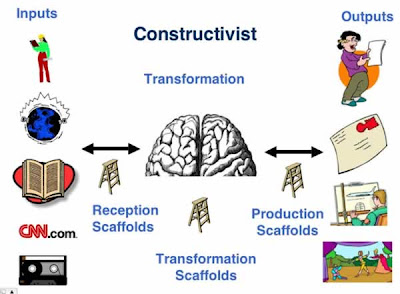(image from wikepedia.org)
I have used the SWOT (Strengths, Weaknesses, Opportunities, Threat) thinking process to examine the potential of wikis for teaching
Strengths
Wikis....
- anyone and everyone can contribute
- are student driven
- provide ideas forum
- contributing can improve literacy skills
- stimulate issues development
- encourage learning collaboration
- are an opportunity to examine issue from all angles
- accept a variety of multi-media input
Weaknesses
Wikis....
- limited control over content
- may require scaffolding to ensure targeted issues development
- open ended - have limited boundaries
- have a loose format
- have inherent design difficulties - lots of editors
- information may need to be recovered
- can end up with a lot of information to process
- may be dominated by an individual or group
- are daunting for some - public domain
- users focus on own contribution
- not for everyone's learning style
Opportunities
Wikis....
- new ideas and concepts
- cross demographic, geogrpahic and cultural collaboration
- reference/link other useful information on the web
- balanced issues development
- creative approaches
- scaffolding and pedagogy tool
- window for teachers and students into learning levels and journey
- ideas and concept storage
- opportunity for meta-learning
Threats
Wikis....
- inappropriate use
- public domain
- copyright and intellectual property rights
.....Reflections
I made a wiki to discuss Prensky's digital natives and digital immigrants which is a topic I have given a lot of thought to recently. You can find my wiki here:
I found the wiki a blank canvas providing many opportunities for issues and ideas development and for including photos, videos and links. The opportunities for collaboration and networking across different demographics and cultures also seemed limitless.
As a teaching tool wikis, supported by scaffolding such as De Bono's hats, PMI or SWOT analysis, allow students to develop an issue in collaboration. The wiki's format allows for problem solving and real-life application which could result in deep thinking as presrcibed by Education Queensland's productive pedagogies. In their study on student wiki use reported in the article "The good, the bad and the wiki" Wheeler, Yeoman & Wheeler found students developed critical thinking via shared online spaces that involved the examination of other students contributions. The report highlights wikis as an effective forum for developing students' required skills in information evaluation, independent learning and creativity.
Scaffolding from teachers can assist in delivering educational outcomes from wikis. Such guidance frameworks might include providing an understanding of the functionality of wikis, and of the issues surrounding copywright and contributing to the public domain. The Wheeler, Yeoman & Wheeler study showed students who use wikis initially copy most of their wiki contribution from popular sites such as wikipedia. Furthermore students found it confronting writing in the public domain and raised concerns about other people copying their work or changing their work. Some students also found using a wiki confusing, with limited structure and too open as a forum.
(image fro www.trevorowens.com)
Notably the Wheeler, Yeoman & Wheeler study was facilitated with young adult students (18-25yrs). The adaptation to wiki use may be more seamless for younger students. The following video shows show children living in the slums in India learnt independently, collaboratively and very quickly how to operate "hole in the wall" computers.
I found the scaffolding guidelines very useful when contributing to the "phones in class" wiki. I have discussed this experience further in the blog "Learning designs wikis and phones in class". I was unclear at the time as to copyright and intellectual property rights laws relating in wiki contributions. I am looking forward to learning more about these issues.
The effectiveness of scaffolding in wiki learning makes sense when related back to constructivist learning theory. In a student driven collaborative forum, supported by appropriate scaffolding wiki participants can learn via interacting. In the journal "Wikis as a teaching tool", Parker & Chao state that "Reflective learning, one of the critical features of constructivism, refers to structured approaches that enable students to reflect upon their learning and to understand their own learning. Wikis allow this reflection to be done collaboratively, moving closer to a fully social constructivist mode of learning".
(image from webquest.sdsu.edu)
Finally the most exciting concept for me with wikis is their potential for developing new ideas and new ways of doing things. In "Learning designs, wikis and phones" I discussed the concept of the "phones in class" wiki becoming a complete body of work. I am excited to experiment with a wiki to develop an issue which I am interested in and witnessing ideas and concepts evolve. In the same way I am looking forward to utilising the wiki as a teaching tool in practice, attempting to scaffold content knowledge effectively for students to utilise the wiki to engage in deep thinking and higher order learning via collaboration. In this way, at this time I feel wikis have a lot more potential as a creative learning tool than blogs which are more restricted and rigid. Here is Kennedy and Nixon debating the topic. Bye for now
References:
Parker, K. R.; Chao, J.T (2007). Wiki as a Teaching Tool. Interdisciplinary Journal of Knowledge and Learning Objects. Vol 3.
Wheeler, P; Yeomans, P; Wheeler, D (2008). The good, the bad and the wiki: evaluating student-generated content for collaborative learning. British Journal of Education Technology. Vol 39, No 6, 987-995.



No comments:
Post a Comment